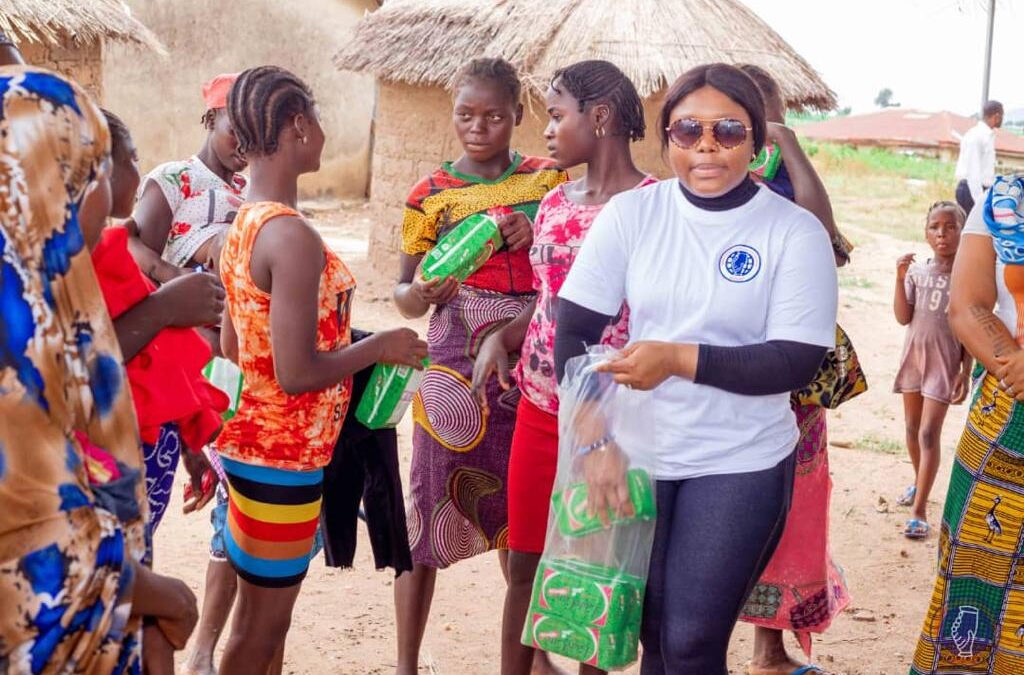Menstrual hygiene management (MHM) is an essential aspect of hygiene for women and adolescent girls between menarche and menopause. Despite being an important issue concerning women and girls in the menstruating age group, it ranks among the least of the daily worries of people in vulnerable communities in Nigeria. Poor knowledge of menstrual Hygiene Management leaves many girls and women with offensive odour, alienation, low self-esteem, early unintended and unwanted pregnancy, trauma, dropping out of school and with preventable infections, which can deteriorate into infertility issues and death. Many girls in Nigeria lack the basic menstrual hygiene management skills necessary to go through their monthly cycle comfortably due to unavailable access to information about menstruation, self-care, effective disposal, cramp management and other physical and emotional characteristics and challenges of a menstrual cycle.

The Anneozeng Ogozi Aid Foundation (AOAF) prioritizes and factors Menstrual Hygiene Management in most of her community and school outreaches and projects. The AOAF team recently embarked on a sensitization outreach to the KAIDA community area council in Gwagwalada FCT, to sensitize the girls and women on the importance of maintaining good menstrual hygiene. The session was the first of its kind for the participants who were not raised to discuss menstruation openly since it is considered shameful. This made it initially difficult for them to respond to the facilitator’s questions as the session progressed. Period stigmatization is real in Nigeria, especially in local and underserved communities. There are no safe spaces for girls to comfortably sit down with peers or with knowledgeable adults who are comfortable enough to engage the girls in menstrual management discussions and respond factually to their many pressing questions regarding the subject. Through gentle persuasion, storytelling and sharing of personal menstrual experiences, the facilitator was able to get the girls to relax and open up about their thoughts on the subject.

The session sensitized participants about the biological process and purpose of menstruation, the reason some females experience menstrual cramps and how to manage it, common and uncommon symptoms of menstruation, the importance of self-care during menstruation and generally, effective menstrual waste disposal and water sanitation. During the demonstration on the correct use/placement of pads, it was discovered that most of the girls do not know about sanitary pads or how to use them, as they normally make use of pieces of clothes for their monthly flow. The facilitator explained what a sanitary pad is and how it is used, the different products available, the number of hours for usage and the ideal disposal methods of used sanitary products.
The facilitator also educated the participants on the safe use of menstrual product alternatives that they were familiar with, which is the pieces of cloth. They were taught on the proper methods to wash, dry and preserve it for the following month. They were also educated on the signs of vaginal infection and how to get proper medical treatment instead of depending on herbs and sitting on a bucket of hot water.
The participants had many questions and the facilitator provided adequate responses and also successfully cleared up the many false myths and erroneous misconceptions participants believed about the subject of menstruation. Sanitary pads were distributed to the participants at the end of the sensitization. The participants and women leaders expressed gratitude to the AOAF team and asked the team to visit soon again.
